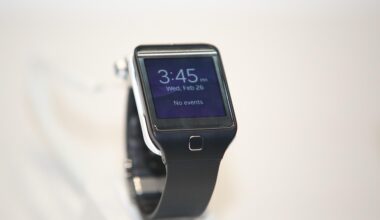Jet Surfing Nutrition: What to Eat Before and After Riding
Jet surfing is an exhilarating sport that blends surfing and motorized technology. To maximize your performance, it’s vital to pay attention to your nutrition strategy. Eating the right foods before engaging in this thrilling water sport can provide the energy, focus, and stamina needed for an enjoyable experience. Before riding, focus on complex carbohydrates like whole grains, fruits, and vegetables because they provide sustained energy. Foods like oatmeal, bananas, and sweet potatoes are excellent choices. Additionally, incorporating protein sources, such as lean meats or plant-based proteins, supports muscle recovery and keeps you full longer. It’s also important to hydrate adequately. Drinking sufficient water before hitting the waves will help maintain energy levels and ensure that you perform your best. Lastly, avoid heavy, greasy foods as they can lead to discomfort and sluggishness while riding. Consider timing your meal plan properly; aim to eat about 2-3 hours before you get into the water to allow for digestion. Your body will thank you for these vital nutritional choices.
Post-Ride Recovery Snacks
After a session of jet surfing, your body requires specific nutrients to recover effectively. Consuming a post-ride meal or snack that contains both protein and carbohydrates is essential. Protein helps repair muscles that were activated during the ride, while carbohydrates replenish energy stores. A simple and effective snacking option is a protein smoothie made with whey protein powder, nut butter, and banana. This combination will help replete glycogen levels quickly after exertion. Another great option is a turkey or chicken sandwich on whole grain bread, providing both protein and healthy carbs. Adding vegetables, like spinach or avocados, boosts vitamins and minerals necessary for recovery. Timing is also a key aspect of your post-ride nutrition; aim to consume your chosen recovery meal within 30 to 60 minutes after surfing. This is known as the anabolic window when your muscles are most receptive to nutrient uptake. Additionally, hydration is critical after intense physical activity, so drink water or electrolyte-rich beverages to rehydrate effectively. Prioritize nutrition after riding; it’s as crucial as pre-ride fueling for your overall performance.
Hydration for Optimal Performance
Staying hydrated is vital to your overall health and significantly impacts your jet surfing performance. Adequate fluid intake not only prevents dehydration but also aids in maintaining energy levels, focus, and coordination while riding. The sun and constant movement on the water can lead to quick dehydration without you realizing it. As a rule of thumb, drink water regularly before, during, and after riding. Electrolyte drinks are also beneficial, especially in hot weather or during prolonged activity. Electrolytes like sodium, potassium, and magnesium help maintain fluid balance and muscle function. Aim to consume around 500-700 milliliters of water two hours before heading out on the water, especially if you are engaging in an intense session. Keep in mind that your individual hydration needs may vary based on factors such as climate and personal sweat rates. Invest in a reusable water bottle that you can take with you, enabling easy access to water during breaks. Proper hydration leads to enhanced stamina, better concentration, and an overall enjoyable jet surfing experience.
Incorporating a balanced diet into your jet surfing routine can significantly improve your performance on the water. Focusing on whole, unprocessed foods can lead to better energy levels and quicker recovery times. Aim to consume various food types to ensure that you receive a broad spectrum of nutrients in your diet. This includes fruits, vegetables, lean proteins, whole grains, and healthy fats. Adding healthy fats from sources like nuts, seeds, avocados, and fatty fish assists with energy levels and overall health. Consider preparing meals ahead of time; this allows you to stay consistent with your nutrition without resorting to unhealthy options. One easy strategy is meal prepping during weekends, so when it’s time to hit the water, you have ready-to-eat meals that cater to your nutrition needs. Don’t forget about snacks! Healthy snacks like trail mix, granola bars, or yogurt can provide quick energy and help keep you satisfied throughout the day. Ultimately, committing to nutritional excellence will elevate your jet surfing experience and performance, making every ride even more thrilling.
The Role of Supplements
For many athletes, including jet surfers, supplements can play a supportive role in enhancing overall nutrition. While whole foods should make up the bulk of your diet, certain supplements can help fill nutritional gaps. For instance, protein powders provide a quick and convenient source of protein, particularly after a rigorous session. Omega-3 fatty acids, often found in fish oil, help reduce inflammation and support joint health, which is critical for a sport with intense physical demands. Creatine is another supplement that may boost physical performance by increasing short-term energy levels. However, it’s important to research and choose high-quality supplements to ensure they are safe and effective. Always consult with a healthcare provider or a nutrition specialist before integrating new supplements into your routine, especially if you have underlying health concerns. Remember, supplements should never replace a balanced diet but should be viewed as additions that can aid in performance. A solid understanding of supplements can empower your nutritional strategy for success in jet surfing.
Another essential aspect of nutrition for jet surfers revolves around timing. Eating at the right moments is crucial for optimizing performance. The pre-ride meal should be timed for 2–3 hours before heading out on the water; this gives your body ample time to digest food and access the energy when you need it most. On the flip side, it’s equally important to remain aware not to skip meals post-riding. A well-timed recovery meal can help restore energy levels and repair muscles effectively. Additionally, consider whether your jet surfing sessions take place during peak heat times. If so, you may need to adjust your nutrition plan to include more hydration and electrolytes. Similarly, moderate your nutrition needs based on your riding intensity and duration. Every individual is different, and their nutritional demands may vary accordingly. Listen to your body and tweak your eating schedule based on how you feel during and after rides. Optimizing meal timing alongside a focus on quality foods can substantially enhance your performance and overall enjoyment.
Conclusion: Prioritizing Nutrition
In conclusion, prioritizing nutrition can significantly affect your overall jet surfing performance. A strategic approach to pre-ride and post-ride nutrition, combined with proper hydration, can help enhance energy levels and expedite recovery. Whether you’re a recreational rider or an experienced jet surfer aiming for competitions, understanding your body’s needs and fueling it adequately is crucial. Experiment with your nutrition strategies to find what works best for you. Each rider is unique, and preferences for food types and meal timing can differ widely. Bear in mind the importance of listening to your body during the ride and adjusting your nutrition plan as necessary. Stay committed to your nutrition, and you will notice improved performance, stamina, and overall enjoyment during your time on the water. As you invest in better fueling practices, your commitment will reflect in your rides. Jet surfing is all about fun, excitement, and performance; with the right nutrition plan in place, you can elevate your experience to the next level. Embrace these nutritional strategies and enjoy the benefits of a well-fueled jet surfing adventure.


